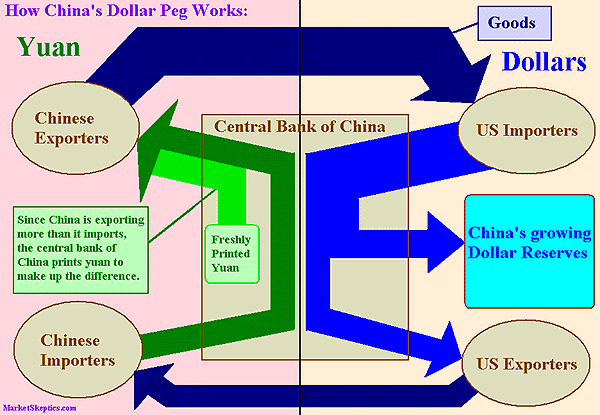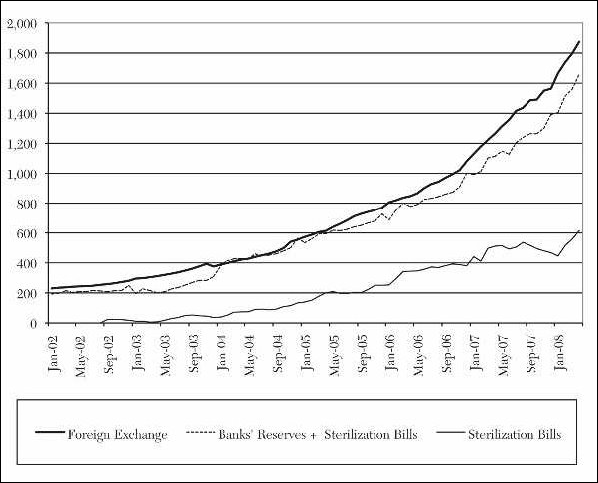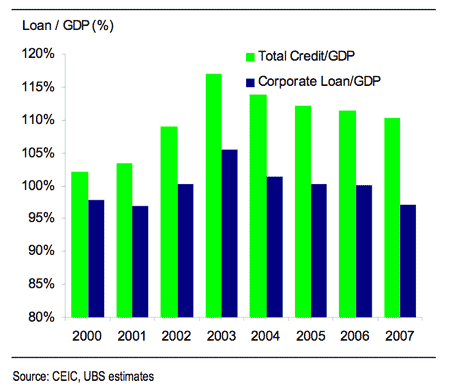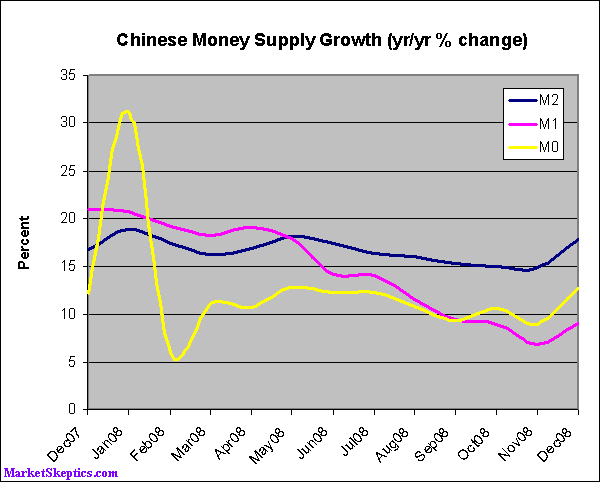http://globalfire.tv/nj/08en/politics/russia_has_awoken.htm
The New Russian Revolution Has Deposed The Jews
By Arthur Cristian
1-23-9
Shortly after Vladimir Putin was elected president of Russia in 2000, the murdered family of Czar Nicholas was beatified. Until quite recently, the centers of Jewish power had hoped to preserve some idealized memories of the murderous Soviet system in the minds of the Russians, but it turned out to be a vain hope.
Because Bolshevism was formulated and executed by Jews, their power centers had retained fond hopes of being able some day to reconnect and reinstall some sort of Jewish lobby leverage in the Kremlin. These fond hopes were dashed by Vladimir Putin.
By the end of 2008, the Russians were expected to have decided on what archetype they preferred: Stalin's 'Patriotic War' or Czarism. Until quite recently, Stalin had remained slightly ahead of Czar Nicholas II . 'Then, however, the Czar mysteriously pulled ahead.' (Die Welt, 17 July 2008, page 1) After that, the choice no longer had to be made.
The Jewish Lobby was of course hoping that a Czarist cult would never rise again, since the Czar had been the great adversary of the Bolshevik Jews. Now however, the Russians again see in Czar Nicholas II a kind of savior who, like Jesus, had dared to oppose the Pharisees.
Following on the heels of the organized collapse of the Soviet Union, the global Jewish Lobby was able to install Boris Yeltsin (alias Jelzman) in the Kremlin. Once they had seized control of Russia's natural resources, they believed they could rule forever, or at least as long as they were operating under the protection of the US military forces. Not only did they control the military bloodhound USA, which they could let loose against any country that became troublesome; they also controlled Russia, whose energy wealth they could use to exploit and enslave the entire planet. Yeltsin-Jelzman allowed the Russian military forces to disintegrate rapidly.
In the early 1990s the Arab press investigated the Jelzman case and exposed Yeltsin as a puppet of the Lobby, providing additional background details. On 28 November 1992 the newspaper 'Al Arab', published in London, made the following announcement on the front page: 'The name change was decided upon at the 20th Party Congress ... Yeltsin is a Jew. Risselov, a member of the Volksunion, revealed that the family name of President Yeltsin was Jelzman, a German Jewish name. The 20th Party Congress then decided to change the family name of Boris Jelzman to Yeltsin ... The reason given for this change was that the Russian people would be afraid of the name Jelzman since his grandfather Jelzman had murdered thousands of Russians under Beria.'
Everything had seemed to be going well for the Lobby. Then, out of a clear blue sky, Putin's coup occurred.
He deposed the terrible Jelzman-Yeltsin. Today Yeltsin's Jewish background is openly discussed even in the Establishment press, where as he is described as having 'converted to Christianity'. For example, on page 1 of its issue of 17 July 2008, Die Welt refers to 'Boris Yeltsin, the Communist who later converted to Christianity.'
When they brutally murdered the Czar's family in Yekaterinburg on the night of 17 July 1918 in the house of the engineer Ipatjev, the Bolsheviks unwittingly established '...a cult that, 90 years later, is still as strong as ever.' (Die Welt, 17 July 2008, p. 1) This was true even though Jelzman did everything in his power to erase the memory of the Czar from Russian consciousness. 'Boris Yelzin even had the Ipatjev house demolished without being able to stop the growing fondness for the Czar in Russia.' (Die Welt, 17 July 2008, page 1).
However, the Russian schools now teach that it was Jews who murdered the Czar's family, which is probably the reason why even Wikipedia has begun reporting that the murderers were Jews, a fact that could not be mentioned in former times. 'On 4 July 1918, the Cheka took over guarding the Romanovs in Yekaterinburg. They were accompanied by Jakov Jurovski... Jurovski was a Jew.' (from Wikipedia). Two additional Jewish assassins who joined the Jurovski murderers were Alexander Belobarodov and Filip Goloschtschokin.
Today, the Russians weep when they think of the horrible crime. 'Only the Jews would have been capable of such a terrible bloody crime' stated a participant in the memorial mass in front of the Church of the Blood that was held in Yekaterinburg in 2008.
According to eyewitness reports of the massacre, "the Czarina complained to Commandant Jurovski about the empty room in which they were held and she requested two chairs. Jurovski then had two chairs brought in, on which the Czarina and her ill son Alexi sat down. Jurovski ordered the other family members to stand in two rows behind mother and son, then brought in the execution detail. Jurovski informed the Czar that the government had ordered their execution and therefore, he was now going to shoot them. The Czar said nothing except the words 'Forgive them Father, for they know what they do' as Jesus said on the Cross. Then Commandant Jurovski shot him. All the other soldiers also shot Nicholas as well, and he died immediately.
Then the firing squad began shooting wildly to kill all the other members of the family. When the shooting was over, Alex and three of his sisters were still alive and lying wounded on the floor. The bullets that were fired at the girls seemed to have been deflected. The soldiers then began bayoneting the victims. However, the bayonets became stuck in the girls' bodices. This was because, during internment in Alexander Palace, the children and Lady-in-waiting Anna Demidova had sewed a large number of the family jewels and diamonds into a pillow and the girls' bodices. On the evening they were murdered they were wearing these bodices, and in addition, Demidova attempted to deflect the bullets with the pillow. For this reason the execution lasted about 20 minutes until the last member of the family was dead. After the murders, Jurovski attempted to erase all traces of the crime.' (From Wikipedia).
According to a report released by Archbishop Wikenti on 17 July 2008, around 40,000 persons took part in a religious procession from Yekaterinburg to an abandoned mineshaft some 18 kilometers distant.
In conjunction with the memorial service for the Romanovs, copies of 'The Protocols of the Elders of Zion' were offered for sale.
The bodies of Czar Nicholas, his German wife Alexandra and their five children had been carried to that place after they had been shot by their Jewish murderers in the night of 17 July 1918 in Yekaterinburg. In conjunction with the memorial service for the Romanovs, copies of 'The Protocols of the Elders of Zion' were offered for sale. Large numbers of printed pamphlets were distributed along with the Protocols. The printed materials were entitled 'Why we hate the Jewish Mafia' and posed the question 'Is This Xenophobia or Self Defense?' The student Ivan Kolsev, 20, who had wrapped himself in a Czarist banner, expressed the opinion of many when he said 'Democracy has no future -- we are returning to Monarchy!' On the banner was written 'In honor of Russia: for Czar and Fatherland.' [Agence France-Presse (AFP), 28 July 2008.]
For the Russians, the Jews are guilty of having killed emissaries of God when they murdered the Romanov family, since the family has been beatified. '...Just as they once crucified Jesus' said a participant in the memorial services. 'Nicholas and Alexandra were our father and mother -- they were like Russia's parents' said another of the faithful. Another participant in the memorial mass expressed enthusiasm for the return of the Czarism: 'The Czar is God's chosen on Earth, we must have a Czar.' (AFP 17 July 2008.)
The new Czarist cult is more than a revolution, it is the rebirth of the Russian nation after all the suffering the Bolsheviks inflicted on it. Venezuelan President Hugo Chavez expressed this view during his visit to Moscow at the end of July 2008: 'Venezuela takes note of the rebirth of Russia with great and affectionate attention.' (Die Welt, 23 July 2008, p. 5)
President Medvedev then expressed sincere appreciation to President Chavez for his heartfelt interest. Since his first day as President of Russia, it has been Putin's principal goal to enable Russia's reawakening. He and his allies have always had a clear picture of the people who murdered the Romanovs along with 55 million other Russians.
It was always clear to Putin that these peoples' primary aim was to suck Russia dry and annihilate it for all time with their unparalleled parasitism.[the same pattern is most prevalent here in the U.S.] A Kremlin politician close to Putin was quoted as saying about the then most influential Jews: 'Boris Beresovski and Vladimir Gussinski are like bacteria that establish themselves in diseased bodies, but then die when the bodies grow healthy again.' [Jewish Telegraph Agency (JTA), 2 April 2002.] This statement reminds us of a passage from Mein Kampf: 'The Jew is and will remain the eternal parasite, a freeloader that, like a malignant bacterium, spreads rapidly whenever a growth medium is made available to it.' (Chapter 11)
Vladimir Gussinski was the head of the Jewish Central Committee in Russia as well as chairman of the Jewish World Congress. After fleeing Russia for refuge in Israel, he stated to the world press that in Russia, 'a new state ideology against the West is to be feared... It has many anti-Jewish characteristics.' He called the then Russian president, Vladimir Putin, an 'extreme anti Semite and secret admirer of Hitler.' (Spiegel, 25/2000, p. 180)[ as usual spreading lies about people..always stirring up trouble and blaming it on others]
In early July 2008 observers noted a new high point in Russia's struggle against the Lobby, when the new US ambassador was installed in Berlin. Former chancellor Gerhard Schröder, an intimate friend of Putin, declined the invitation of the American ambassador, without explanation.
In the entire history of Post-War-Germany, or BRDDR, this had never before occurred. Such a snub could never have happened before, even in a dream. In addition to the fact that Schröder is not overly fond of the Lobby, he was certainly advised by his friend Putin to decline the invitation in order to demonstrate the new power relationship in Europe. 'When the new American embassy is opened in Berlin, Gerhard Schröder was absent. The ex-chancellor had been invited by the Americans, but he declined the invitation... The reasons for the former chancellor's failure to appear are not known.' Spiegel.de, 4 July 2008







![[Most Recent Quotes from www.kitco.com]](http://www.kitconet.com/charts/metals/gold/t24_au_en_eukg_2.gif)
